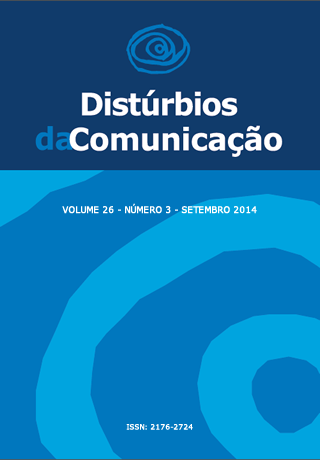Efeitos do tubo orotraqueal sobre a performance alimentar e sinais de estresse em recém-nascidos pré-termo
Palavras-chave:
Prematuro, Intubação, Alimentação.Resumo
Verificar a influência da intubação orotraqueal sobre a performance alimentar, sinais de estresse e tempo de transição da sonda para a via oral plena, em recém-nascidos pré-termo. Estudo observacional analítico, envolvendo 45 prematuros divididos em dois grupos: com o uso de tubo orotraqueal (uso de tubo orotraqueal GTOT, n=16) e sem uso de tubo orotraqueal (GSTOT, n=29). Avaliaram-se as seguintes variáveis: proficiência, taxa de transferência, desempenho alimentar e ocorrência de sinais de estresse (cianose, palidez, bradicardia e/ou queda na saturação de oxigênio), liberação da via oral e o tempo de transição da alimentação por sonda para a via oral plena. Os dados foram analisados através do software Stata 10, sendo considerado significativo um valor de p<0,05. A proficiência, taxa de transferência e o desempenho na primeira alimentação por via oral foi significativamente menor no grupo que usou tubo orotraqueal. Ainda, as crianças que não usaram tubo orotraqueal levaram menos da metade do tempo para obter a via oral plena, quando comparadas às que usaram (10,8±8,4 X 27,6±17,7 dias, respectivamente) (p<0,001). Não houve diferença entre os grupos quanto à ocorrência de sinais de estresse, na primeira alimentação por via oral. Conclui-se que o uso do tubo orotraqueal dificultou a aquisição da via oral plena, influenciando negativamente a performance alimentar de recém-nascidos pré-termo.
Downloads
Métricas
Downloads
Publicado
Edição
Seção
Licença
Copyright (c) 2014 Vívian da Pieve Antunes, Luana Cristina Berwig, Eduardo Matias dos Santos Steidl, Angela Regina Maciel Weinmann

Este trabalho está licenciado sob uma licença Creative Commons Attribution 4.0 International License.









